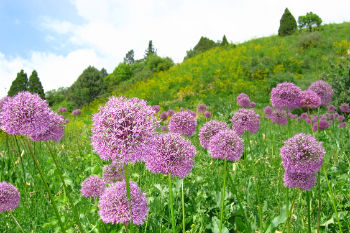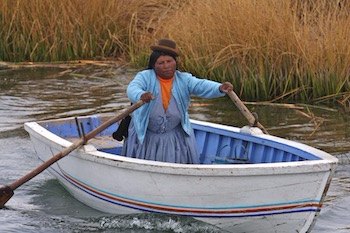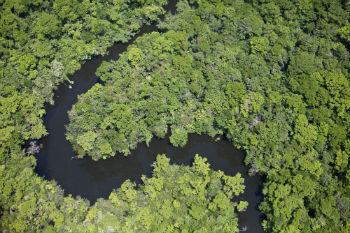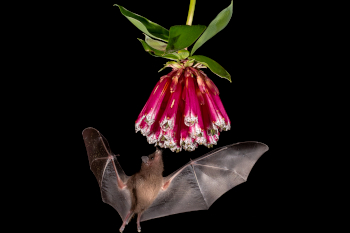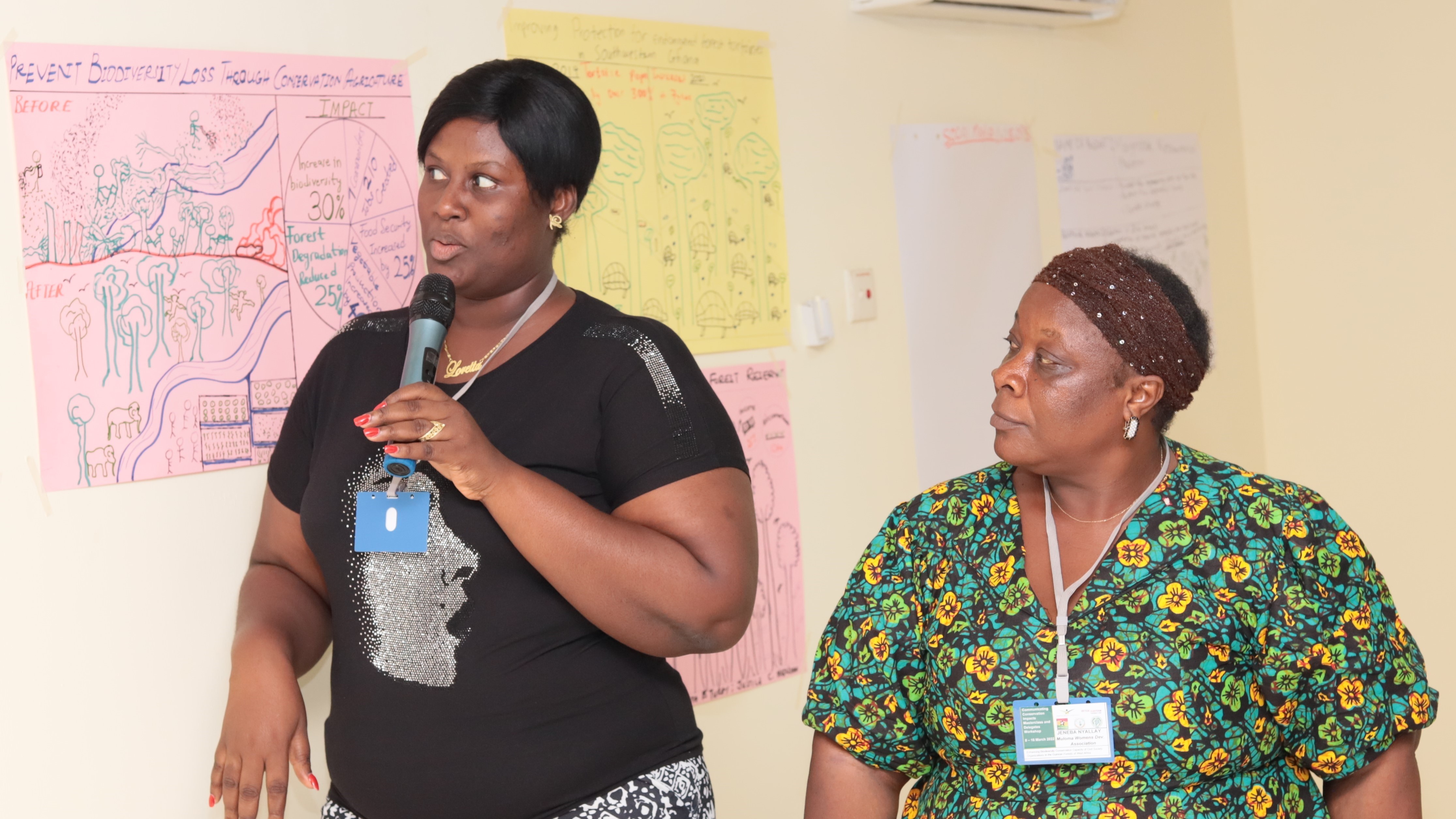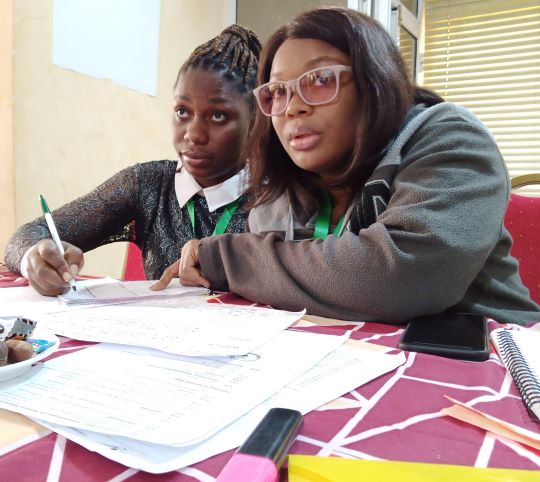Main menu
CEPF is a joint initiative of l’Agence Française de Développement, Conservation International, the European Union, Fondation Hans Wilsdorf, the Global Environment Facility, the Government of Japan and the World Bank.
Visitez le site français コア情報の日本語翻訳を読むOr use Google Translate to translate the English site to your language:
GTranslate
Mentor Programs Boost West African Conservation Organizations
22 August 2023
22 August 2023
As in nature, the ecosystem of civil society-led conservation is stronger when there is thriving diversity.
This principle and the value CEPF places on local knowledge and commitment are behind the fund’s emphasis on small organizations in the biodiversity hotspots—helping them maximize their role in the conservation community and realize their growth potential and long-term sustainability.
The focus on capacity building is reflected in the strategy for CEPF’s 2016–2022 investment in the Guinean Forests of West Africa Biodiversity Hotspot, which stresses working with local organizations to build on their strengths. Based on lessons learned from previous investment in the region, CEPF and its regional implementation team, BirdLife International, embraced mentorship as a key means to meet capacity-building goals. As a result, the Guinean Forests Mentorship Program was launched in 2019.
The Tropical Biology Association (TBA) led the largest effort under this program, seeking to increase the organizational capacity of 45 civil society organizations in Cameroon, Ghana, Nigeria and Togo, as well as 10 women-led organizations—two each from Ghana, Nigeria, Cameroon, Sierra Leone and Liberia. A similar initiative led by Fauna & Flora International (FFI) provided mentoring and training to 17 organizations in Liberia and São Tomé and Princípe, while the Ghana-based West Africa Civil Society Institute (WACSI) led the mentorships for 17 organizations in Côte d’Ivoire, Guinea and Sierra Leone.
All three lead organizations administered the Civil Society Tracking Tool (CSTT) and Gender Tracking Tool (GTT) at the start and end of their programs. In total, 198 men and 124 women were mentored and received training.
"The mentoring helped me to focus on what is important: learning how to write a vision and mission statement, knowing who my target audiences are and the appropriate means of communicating with them. And measuring the impacts of our projects."Nyimale Grace Alawa, Biodiversity Preservation Center, Nigeria.
FOCUS ON ORGANIZATIONAL MANAGEMENT
TBA designed and delivered training through tailor-made master classes and mentoring focused on organization management. With support from in-country partners, invited local civil society organizations enrolled as mentees. The organizations’ capacities were assessed and, where needed, immediate support was provided in the way of internet connections and software to facilitate online learning. Mentees participated in master classes on project development and fundraising, institutional management and leadership, communicating conservation impacts, and empowering women in conservation. A six-month mentorship opportunity and workshops to share participant experiences complemented the classwork.
The program connected each mentee organization to one of 16 external mentors recruited from among experts and practitioners in the project countries. The mentee-mentor pair defined their goals and timelines guided by protocols developed for the program. Five group sessions were also held, where multiple mentees and mentors discussed topics such as strategic communications, financial sustainability, strategic networking and partnerships, stakeholder engagement, and effective organizational and team management.
Eight of the participating organizations were later awarded small grants from CEPF. Participants raised more than US$3.4 million for conservation in the two years following the mentorship and attributed 52% of this success to the program.
"Now I have a clear path to deliver my expected outcomes since this program helped me develop three important institutional strategic documents—a fundraising plan, gender policy and personal leadership development plan."Gifty Baaba Asmah, Daasgift Quality Foundation in Ghana.
EMPOWERING WOMEN LEADERS
TBA also conducted the “Empowering Women in Conservation in Africa” master class, which focused mentees on women’s contributions in natural resource management, strategic planning, leadership and management, gender issues in conservation, gender equity and women’s empowerment. Twenty-six representatives from women-led organizations based in Ghana, Nigeria, Cameroon, Liberia and Sierra Leone and their affiliate networks participated in the course. Through the support of women mentors, learning hubs in each country allowed participants to learn together. By project completion, five new “women in conservation networks” were established, one in each of the project countries.
The mentees also created several social media platforms where they share information and hold virtual meetings. And women leaders joined existing international women’s networks. For example, Nigerian organizations joined the Women in Nature Network (WINN) and established their own local chapter. Meanwhile, a new network called West Africa Women in Conservation Network (WAWiCoN) was formed with participants from Ghana, Nigeria, Cameroon, Liberia and Sierra Leone.
TURNING TRAINING INTO ACTION
The FFI-led program provided training and mentoring primarily aimed at organizational strengthening. Activities included preparing gender policies, reviewing vision and mission statements, learning about grant application processes and improving communication skills. Participants also received training on the development of proposals. Fifteen of the resulting proposals were awarded as subgrants via a small-grants program built into the project. The grants covered the costs of goods and services that were deemed essential for improving the effectiveness of the organization but difficult to fund via other grant programs—such as printers, projectors, cameras, laminators, software licenses, laptops and English classes. This also gave all mentees the opportunity to practice applying for another grant. Further, three mentee organizations subsequently received grants from the CEPF Guinean Forests of West Africa investment, and two mentees submitted successful proposals to other funders after the training.
WACSI’s program focused on four components: training; mentoring and coaching; support to apply for small-grant proposals; and documentation of change stories and lessons learned. WACSI’s mentorship and coaching process was designed to improve on the participating organizations’ operational processes and related policies, taking into consideration the specific context of each organization. The training and technical assistance content was developed based on information gathered from organizations through learning needs assessments conducted prior to each training phase.
The project participants received post-training action plans that covered development of charters to guide board functioning; strategic plans; institutionalized staff appraisals; strategic communication plans and tools; organizational monitoring and evaluation systems; and sound financial management systems.
As a result, mentees were able to take ideas and activities to heightened levels. For example, in Guinea, STEP-Guinée developed a strategic plan, a procedure manual, a communication plan, a resource mobilization plan and a human resource policy. All the policies developed have been approved by the STEP-Guinée board, which was put in place as a result of the mentorship project. Importantly, WACSI’s mentees used their new skills to fundraise, with 42% of them making successful grant applications after the program and one organization raising more than US$1 million for conservation projects.
